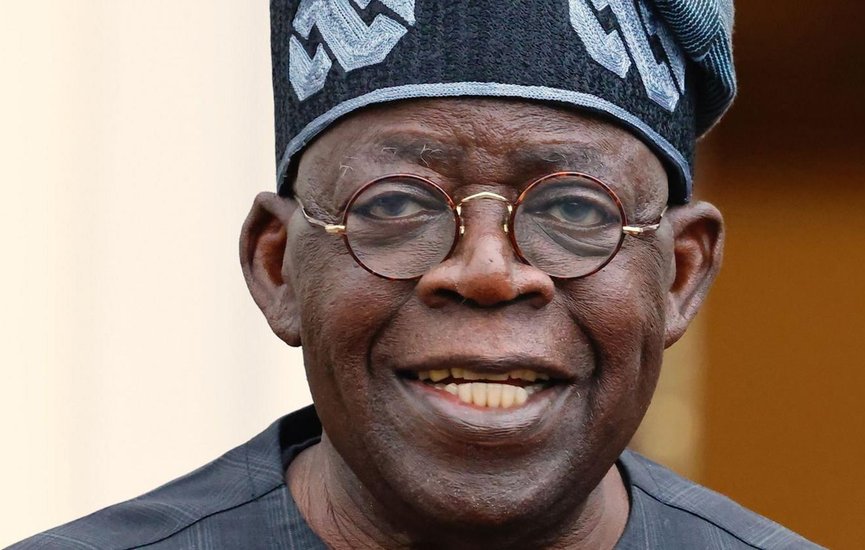Key Highlights:
1. Elimination of Fuel Subsidies:
One of the most significant actions taken by President Tinubu is the abolition of fuel subsidies, which have long been a financial strain on Nigeria’s national budget. These subsidies, costing the government billions of dollars each year, have distorted the energy sector, contributing to inefficiencies and corruption.
While the removal of the subsidy is expected to drive fuel prices up in the short term, it will free up resources that can be redirected toward essential sectors such as healthcare, education, and infrastructure.
To mitigate the adverse effects on the most vulnerable groups, President Tinubu assured the public that the government will implement targeted cash transfers to support citizens affected by the increase in fuel costs.
2. Currency Depreciation and Exchange Rate Reform:
In an effort to stabilize the economy, Tinubu’s administration has made the decision to devalue the naira, aligning the national currency with market forces. This measure aims to address the disparity with the black-market exchange rate and improve Nigeria's global competitiveness.
The Central Bank of Nigeria (CBN) has been tasked with overseeing a more flexible exchange rate policy to attract foreign investments and reduce pressure on the country’s foreign reserves.
3. Focus on Infrastructure Development:
The current administration is prioritizing extensive infrastructure projects as a strategy to stimulate economic growth. This includes substantial investments in transportation networks (such as roads, ports, and railways) and energy generation.
In addition, the government is promoting the privatization of state-owned enterprises to enhance operational efficiency and attract private sector capital.
4. Economic Diversification and Agricultural Revitalization:
Understanding the risks of relying heavily on oil exports, President Tinubu is making economic diversification a cornerstone of his policy. Emphasis will be placed on agriculture, technology, and manufacturing as the driving forces behind this new economic blueprint.
A key component will be increasing agricultural output by modernizing farming techniques, improving irrigation infrastructure, and developing stronger market connections for farmers.
5. Combating Corruption and Reforming Governance:
As part of his broader economic strategy, Tinubu is intensifying efforts to address corruption, which has long been a significant barrier to Nigeria’s growth potential. The Economic and Financial Crimes Commission (EFCC) will receive additional support to target high-profile corruption cases.
The President is also focusing on improving the efficiency of government institutions by reducing bureaucratic hurdles and streamlining processes to make it easier to conduct business in Nigeria.
Regional and International Reactions:
Officials from the World Bank and International Monetary Fund (IMF) have expressed cautious optimism about Tinubu’s reforms. They acknowledged that removing fuel subsidies could potentially boost Nigeria’s economic growth in the long run, but also warned that the country should be prepared for short-term social unrest.
Opposition parties within Nigeria have voiced strong opposition to the reforms, particularly the elimination of fuel subsidies. Critics argue that the government has not presented a clear strategy to offset the negative impacts on the population, especially for the poor and middle class.
Atiku Abubakar, the former Vice President of Nigeria and leader of the opposition People’s Democratic Party (PDP), remarked, "While reforms are crucial, pushing them forward without adequate measures to protect the most vulnerable will deepen the struggles of millions of Nigerians."
Public Reaction:
Public response to the reforms has been mixed. Some Nigerians are hopeful that the changes will lead to long-term economic prosperity, while others are concerned about the immediate consequences, such as rising living expenses and the potential for job losses.
Civil society organizations have urged the government to ensure social safety nets are in place before fully rolling out the reforms. They also emphasized the need for proper public awareness so that citizens can understand the changes and their potential impact.
Future Outlook:
Experts suggest that while the initial impact of these reforms may be challenging, they could lay the foundation for long-term economic stability. If the reforms are successfully implemented, Nigeria could emerge as a regional economic leader, with enhanced competitiveness on the global stage.
The key to success will lie in effective implementation, the commitment of political leadership, and the ability to maintain social stability during the transition period.
Conclusion:
President Tinubu’s economic reforms are ambitious and have the potential to reshape Nigeria’s economic landscape in the coming years. However, the effectiveness of these reforms will depend on the government’s ability to manage the short-term economic challenges, provide support to vulnerable communities, and tackle the deeply entrenched issue of corruption. As Nigeria embarks on this critical phase of its economic journey, both the country and the world will closely observe how the nation navigates these pivotal changes.
